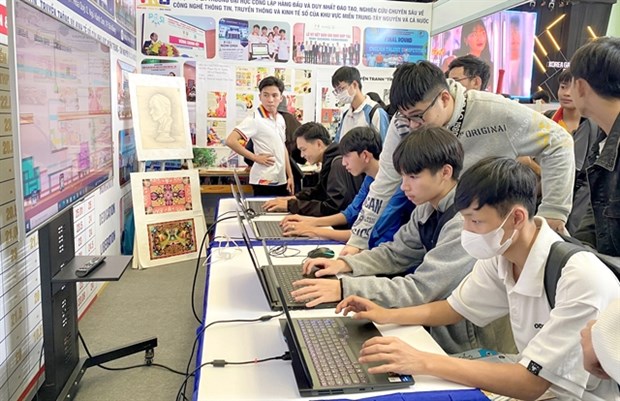
|
Getting your Trinity Audio player ready...
|
In recent years, Vietnam has witnessed a burgeoning interest in game design education, signalling a promising trajectory for the nation’s gaming industry and its role in shaping the digital economy. Spearheaded by the Ministry of Information and Communications (MIC), ambitious strategies aim to propel the industry’s revenue to 1 billion USD within the 2022-2027 timeframe, underscoring the pivotal role of specialised education in driving sectoral growth.

Traditionally, the Vietnamese gaming industry has drawn its workforce from fields like information technology (IT), software development, and graphic design. However, with the evolution of the global gaming landscape and the recognition of gaming as a potent economic driver, there has been a paradigm shift towards tailored training programmes to meet the industry’s specialised demands.
While game design courses have proliferated across more than 100 colleges worldwide, they remain relatively novel in Vietnamese universities. Nonetheless, recent initiatives signal a transformative shift towards cultivating talent specifically tailored to the gaming sector’s unique requirements. A tech company’s launch of its Academy of Media Arts in January, focusing on animation and game design, marked a significant milestone in this endeavour.
Similarly, FPT Polytechnic College’s introduction of a two-year game programming course and the Posts and Telecommunications Institute of Technology (PTIT)’s forthcoming undergraduate degree in game design underscores the industry’s growing educational footprint in Vietnam.
According to Dang Hoai Bac, Director of PTIT, the programme’s emphasis on educational games and alignment with market trends reflects a forward-thinking approach to curriculum design. By fostering creative thinking and interdisciplinary knowledge, PTIT aims to equip students with the skill set necessary to thrive in the global gaming industry.
This initiative follows in the footsteps of RMIT University Vietnam, which blazed the trail with the introduction of an undergraduate degree in game design in 2022, modelled after a successful programme at RMIT University in Australia.
However, the impetus behind this educational revolution goes beyond domestic aspirations. A survey conducted by RMIT University underscores the critical need for substantial investment in human resources to sustain the industry’s exponential growth. In 2020, Vietnam’s gaming industry revenue surged to 12 trillion VND (US$ 482 million), more than doubling since 2015.
Despite ranking among the top 10 game distributors in Southeast Asia, Australia, and New Sealand by download volume, Vietnam grapples with a shortage of skilled designers capable of driving innovation.
Currently, many Vietnamese studios operate under a software outsourcing model, yielding short-term profits but inhibiting breakthroughs in the global market. To elevate the industry’s stature and foster long-term sustainability, Vietnam must cultivate a workforce proficient in holistic game development, capable of crafting innovative titles from inception to completion.
According to industry experts, game design education should encompass multifaceted approaches, blending insights into domestic and international markets with hands-on instruction from industry professionals. Chu Tuan Anh, Director of a computer education institution in Vietnam, underscores the importance of tailored curricula that equip students with adaptive skills to navigate technological advancements.
Despite the burgeoning demand for skilled professionals, Nguyen Ngoc Bao, Director General of VTC, highlights a persistent gap between industry needs and the skill set of IT graduates. However, with the proliferation of game design degree programmes across the country, perceptions of the gaming industry are evolving, and the sector’s workforce demands are poised to be met.
As Vietnam forges ahead in nurturing its gaming industry talent pool, the trajectory is set to transform social perceptions of gaming while meeting the workforce demands of a burgeoning sector poised to drive the nation’s digital economy forward. With comprehensive education initiatives, strategic partnerships, and a steadfast commitment to innovation, Vietnam stands at the cusp of a gaming renaissance that promises to reshape its economic landscape for years to come.
















